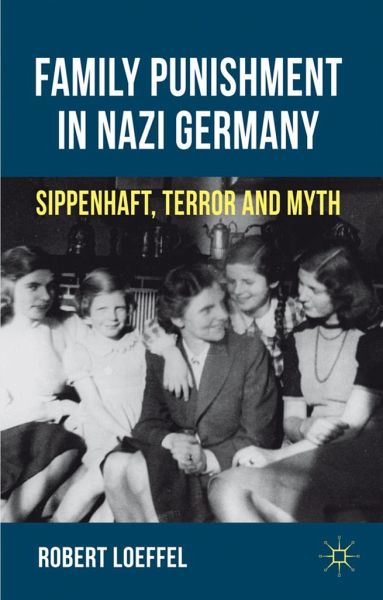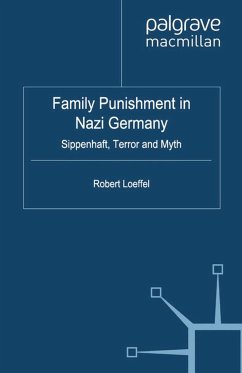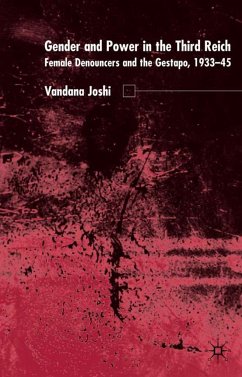
Family Punishment in Nazi Germany
Sippenhaft, Terror and Myth
Versandkostenfrei!
Versandfertig in 6-10 Tagen
38,99 €
inkl. MwSt.
Weitere Ausgaben:

PAYBACK Punkte
19 °P sammeln!
In the Third Reich, political dissidents were not the only ones liable to be punished for their crimes. Their parents, siblings and relatives also risked reprisals. This concept - known as Sippenhaft - was based in ideas of blood and purity. This definitive study surveys the threats, fears and infliction of this part of the Nazi system of terror.














